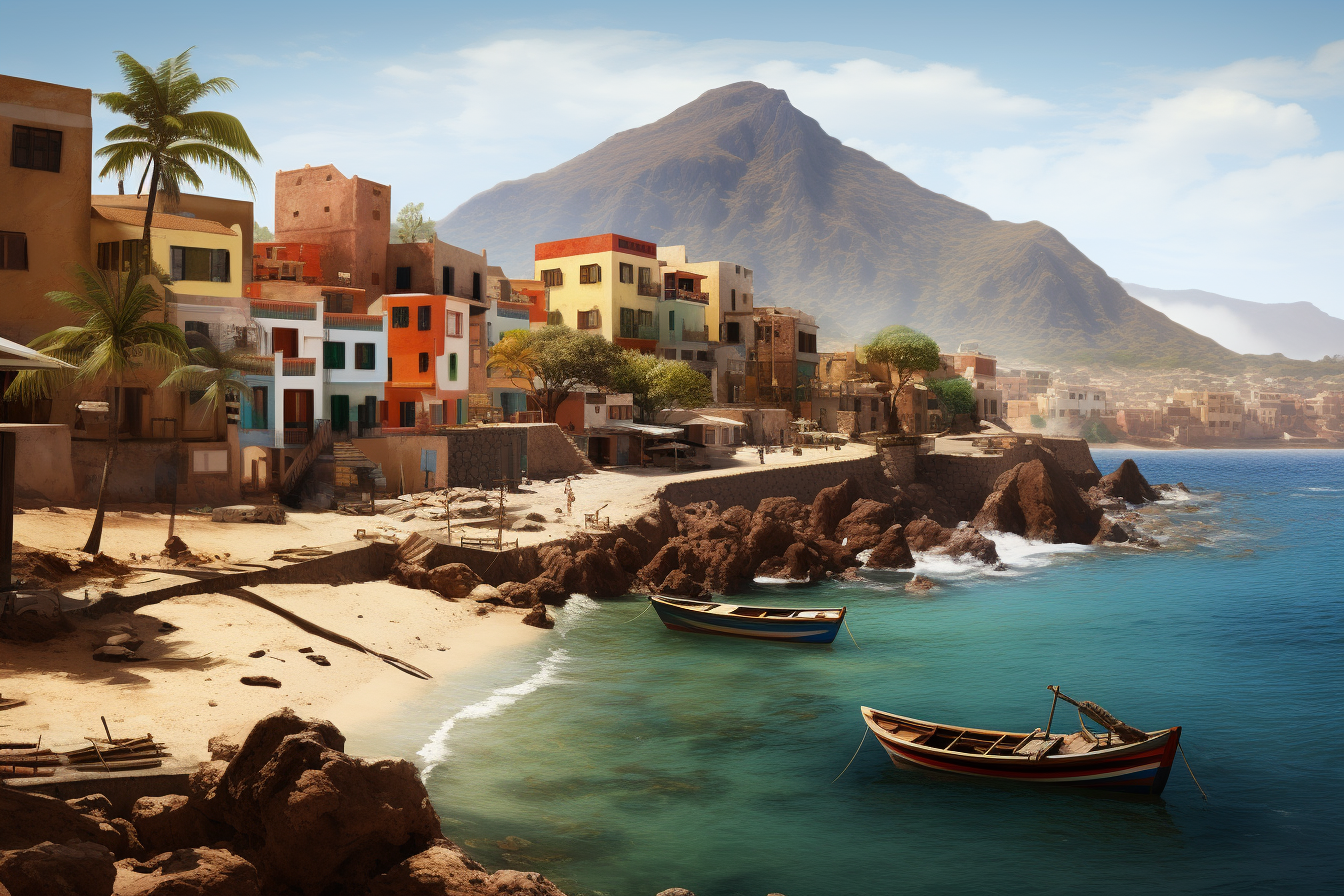A Timeline of Cabo Verde
A broad timeline of Cabo Verde

Discovery and Initial Colonisation (1456 - 1490)
Portuguese explorers, led by António de Noli, discovered the uninhabited islands in 1456. The Portuguese Crown quickly initiated colonisation, focusing on the islands of Santiago and Fogo. The settlers introduced sugarcane cultivation, using enslaved Africans for labour.
Transatlantic Slave Trade Hub (1500 - 1700)
Cabo Verde's strategic location made it a significant centre for the transatlantic slave trade. The islands served as a gathering point for slaves from the African mainland. The slave trade brought economic prosperity but at a terrible human cost, including the forced displacement and suffering of countless Africans.
Economic Diversification (1700 - 1800)
With the decline of the sugarcane industry, the islands diversified into other areas, including cotton and coffee cultivation. However, the slave trade remained a significant part of the economy, and the islands became a provisioning stop for whaling and transatlantic shipping.
Abolition and Economic Decline (1800 - 1900)
The 19th century saw the abolition of the slave trade, leading to economic decline. Cabo Verde faced a series of devastating droughts and famines, resulting in mass emigration, primarily to the United States and the Caribbean.
Colonial Rule and Nationalism (1900 - 1970)
Under Portuguese rule, Cabo Verdeans experienced social and economic marginalisation. The early to mid-20th century saw the rise of nationalist movements, inspired by anti-colonial struggles in Africa. The Claridade literary movement emerged, advocating for Cabo Verdean identity and independence.
Independence Movement (1970 - 1975)
The African Party for the Independence of Guinea and Cabo Verde (PAIGC) intensified the struggle for independence. Diplomatic efforts and armed struggle culminated in independence on 5 July 1975, with Aristides Pereira becoming the first President.
Democratic Transition (1980 - 2000)
After a period of single-party rule, Cabo Verde transitioned to a multi-party democracy in 1991. The country has since been lauded for its political stability and democratic governance, setting it apart from many other African nations.
21st Century Developments (2000 - Present)
Cabo Verde has focused on tourism and renewable energy to diversify its economy. The country has made significant progress in social sectors like education and healthcare but faces ongoing challenges such as unemployment, water scarcity, and the impacts of climate change.





